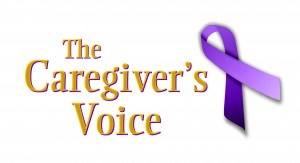 The progress Alzheimer’s researchers are making gives us hope that one day, no family will receive a death sentence—Alzheimer’s.
The progress Alzheimer’s researchers are making gives us hope that one day, no family will receive a death sentence—Alzheimer’s.
Given this, we must proceed with caution when celebrating the progress of Alzheimer’s research, as it comes with three sharp edges.
First, let’s look at a recently reported breakthrough in diagnosing “Alzheimer’s.”
Alzheimer’s Imaging–96% reliable
In spring of this year, Bottom Line, published an article entitled Alzheimer’s Imaging Drug Breakthrough [Link unavailable] about the efforts of Norman L. Foster, MD, professor of neurology, who created a diagnostic test for Alzheimer’s. In brief, using a radioactive contrast dye, doctors perform a PET scan to detect the level of—if any—amyloid plaques in the brain.
First edge of the sword—no cure
Although, this is a great outcome; especially, given the 96% correlation between the initial diagnosis and later findings (during autopsy), what purpose will this serve when there is no cure?
Who wants to receive a potential death sentence?
Only those brave enough who want to know for sure (and who have long-term care insurance in place prior to diagnosis). Or those who want to add to the knowledge base like my father who participated in a clinical trial.
Still, I am vested in finding a cure.
Dementia has been an unwelcome guest of both sides of my family—striking my father and my mother’s sister. Parkinson’s struck down my father’s brother.
We’re at a crossroads. We desperately need more funding to move toward a cure. Yet, our healthcare infrastructure does not yet support those with chronic illnesses such as Alzheimer’s. The risk is we may lose or be denied coverage and then where will that leave us?
“What is Alzheimer’s, really?”
The second edge—What is “Alzheimer’s?”
The more researchers advance their understanding, the more questions they raise.
Recently, more researchers are asking, “What is Alzheimer’s, really?” This also raises the question of how dementia and Alzheimer’s are related. Up until recently, we understood dementia to be the umbrella under which Alzheimer’s is the leading cause. In a presentation last year, Jeffrey Cummings, MD of the Cleveland Clinic, wondered if a person starts with Alzheimer’s then dies of dementia.
It’s not just semantics, either. We must know what it is we’re researching.
Millions in funding rests on what we say we’re researching. Imagine when early researchers were surprised to find brains riddled with plaques and tangles even though (while alive) the person showed no symptoms of brain impairment!
The begs the question, do amyloid plaques really cause Alzheimer’s?
The third edge—Is it dementia or something else?
Having raised the flag of caution, Foster’s diagnostic tool will enable us to know with greater certainty if it is “Alzheimer’s” or something that may be easily remedied.
Dr. Foster’s research helps fill the gaps in current diagnostic measures and is in my opinion the tip of this tripled-edged sword.
If a person experiences memory loss but a PET scan shows no amyloid plaques in the brain, Alzheimer’s may be ruled out while doctors look for other causes such as minor strokes, medication side effects, or malnutrition.
These steps forward will one day rid the earth of these dementing illnesses. Until then, Dr. Foster’s research is another step in helping families plan for the future and avoid delay in getting treatment.
![]()
Norman L. Foster, MD, professor of neurology, director, Center for Alzheimer’s Care, Imaging and Research (CACIR), senior investigator, The Brain Institute at The University of Utah, Salt Lake City.
Thank you Eric Riddle for bringing this to the attention of TheCaregiversVoice.com
For a related article
Brain Scans to Spot Alzheimer’s may be Available this Year [5/30/2023 TCV update: URL no longer available.]









As more and more elderly get affected by these memory loss related diseases, they became a growing concern for their caretakers. Whether their caretakers are their children or individuals from various NGOs or senior care centers, keeping track of such patients is always a task. Caring for a loved one who is physically there but not there in spirit anymore is a stress which can have far reaching effects on families.
Some of the most prominent issues with taking care of patients suffering from Alzheimer’s or dementia are keeping track of their medication and location. Especially, as a slip in either of these could lead to fatal results.
Vesag watch offers a practical solution to both. The Vesag watch not only offers the ability to set customized medication reminders , but also has a GPS tracker which tracks the patients when they wander away and is mainly useful when they are distressed.
VESAG can be the best solution for the Alzheimers/dementia patients and elders.
Just visit wwww.veesag.com and comment. [Updated 8/28/2017]
Thank you for your comment.
Vesag may want to consider sending TheCaregiversVoice.com a watch for review.
Brenda Avadian, MA
Editor, The Caregiver’s Voice REVIEW